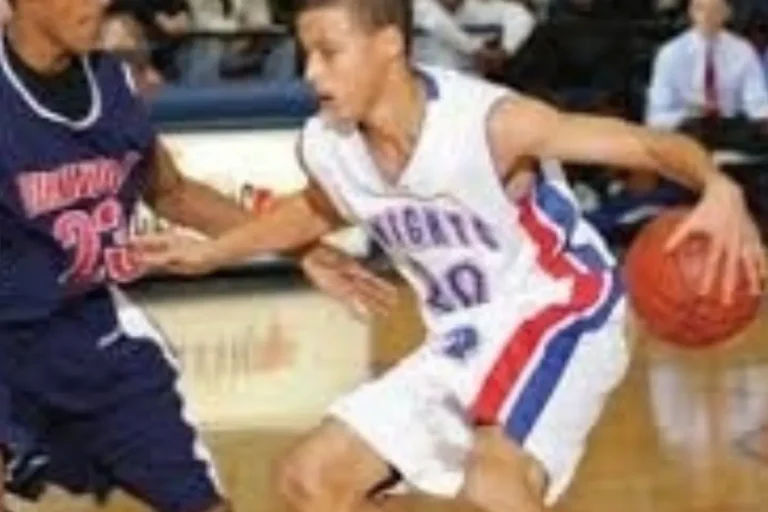How do you get a D1 offer in Football?
Are you dreaming of playing football at the highest collegiate level? Wondering how to turn your aspirations into reality? Look no further, because in this blog post, we will dive into the world of D1 football offers. If you’ve ever asked the question, “How do you get a D1 offer in football?” you’re in the right place.
Understanding the D1 Football Landscape
When it comes to pursuing a D1 football offer, it’s essential to have a clear understanding of the NCAA Division 1 football landscape. This classification is the highest level of collegiate football and is divided into two subdivisions: the Football Bowl Subdivision (FBS) and the Football Championship Subdivision (FCS).
In the FBS, you’ll find the most well-known and prestigious college football programs. These schools, often referred to as “Power 5” conferences, include the likes of Alabama, Ohio State, and Clemson. The FBS subdivision is highly competitive, with teams vying for national championships and attracting top-tier talent from across the country.
On the other hand, the FCS subdivision, while still highly competitive, consists of smaller schools that may not have the same national recognition as their FBS counterparts. However, FCS programs offer their own unique opportunities for players to showcase their skills and compete at a high level.
It’s important to note that D1 football differs significantly from other divisions such as D2, D3, and NAIA. D1 programs typically have larger budgets, more extensive resources, and higher levels of exposure. D2 and D3 schools may still offer competitive football programs, but they have different regulations and scholarship opportunities. NAIA, which stands for the National Association of Intercollegiate Athletics, is another competitive division that offers scholarships but operates independently from the NCAA.
Building a Strong Foundation
When it comes to pursuing a D1 football offer, building a strong foundation is crucial. This foundation encompasses several key aspects, including academics, starting early in the recruitment process, and high school football performance.
First and foremost, academics play a significant role in the D1 recruitment process. Maintaining good grades and meeting the academic eligibility requirements set by the NCAA is essential. D1 programs prioritize student-athletes who excel both on the field and in the classroom. Strong academic performance demonstrates your commitment, discipline, and ability to handle the demands of college-level academics.
Starting early in the recruitment process is another vital component of building a strong foundation. D1 programs often identify and evaluate potential recruits as early as their freshman or sophomore years of high school. Therefore, it’s crucial to begin showcasing your skills and making connections with college coaches as early as possible. Attend football camps, participate in showcases, and leverage your high school coach’s network to gain exposure and capture the attention of D1 programs.
Furthermore, your performance on the high school football field can significantly impact your chances of attracting D1 attention. D1 coaches closely monitor game film, statistics, and accolades to evaluate potential recruits. Standout performances, leadership qualities, and a strong work ethic can help you stand out from the competition. Consistency and improvement throughout your high school career are key, as coaches look for athletes who continually develop their skills and contribute to their teams’ success.
Showcasing Your Skills
When it comes to pursuing a D1 football offer, showcasing your skills is paramount. This involves attending football camps and combines, creating an impressive highlight reel, and taking advantage of summer football programs and showcases.
Attending football camps and combines provides an excellent opportunity to showcase your skills in front of college coaches and recruiters. These events allow you to demonstrate your athleticism, technique, and football IQ. Participating in drills, scrimmages, and one-on-one competitions can help you catch the attention of D1 programs and potentially earn an invitation for further evaluation.
Creating an impressive highlight reel is another crucial aspect of showcasing your skills. A highlight reel is a compilation of your best plays, showcasing your abilities in a concise and impactful manner. It’s important to include a variety of skills, such as speed, agility, strength, and football instincts. A well-edited highlight reel can grab the attention of coaches and provide them with a quick overview of your potential as a D1 recruit.
Summer football programs and showcases also play a significant role in showcasing your skills. These programs often feature competitive games and training sessions where you can demonstrate your abilities against other talented athletes. They provide valuable exposure and allow you to network with coaches and recruiters. By performing well in these environments, you increase your chances of gaining recognition and attracting D1 attention.
Navigating the Recruitment Process
When it comes to navigating the recruitment process for D1 football, there are several important factors to consider. This includes the role of college football recruiting services and agencies, creating a standout player profile, and building relationships with college coaches and recruiters.
College football recruiting services and agencies can play a valuable role in connecting student-athletes with potential D1 programs. These services often have established relationships with college coaches and can help facilitate communication and exposure. They assist in identifying suitable opportunities, guiding athletes through the recruiting process, and providing valuable insights and advice.
Creating a standout player profile is essential for catching the attention of college coaches and recruiters. Your player profile should include detailed information about your athletic achievements, academic performance, and personal background. It should also showcase your highlight reel, statistics, and any notable accolades. A well-crafted player profile presents a comprehensive overview of your abilities and helps coaches evaluate your potential fit within their programs.
Building relationships with college coaches and recruiters is a crucial aspect of the recruitment process. Personal connections and communication can significantly impact the likelihood of receiving a D1 offer. Attend college football camps, visit campuses, and engage in conversations with coaches to demonstrate your interest and dedication. Building these relationships shows your commitment and allows coaches to get to know you on a more personal level, increasing your chances of standing out among other recruits.
Excelling in the Classroom and on the Field
When it comes to pursuing a D1 football offer, excelling in both the classroom and on the field is of utmost importance. This involves maintaining strong academic performance throughout high school, participating in extracurricular activities, and emphasizing leadership and character development.
Maintaining strong academic performance throughout high school is crucial for D1 recruitment. College coaches and recruiters not only look for talented athletes but also seek student-athletes who excel academically. Your grades, standardized test scores, and overall academic record play a significant role in the evaluation process. By prioritizing your studies and striving for excellence in the classroom, you demonstrate your commitment to both athletic and academic success.
Participating in extracurricular activities is another essential aspect of the D1 recruitment process. Engaging in activities beyond football showcases your versatility, time management skills, and ability to balance multiple commitments. Whether it’s involvement in student government, community service, or other sports, these experiences help you develop valuable skills and demonstrate your well-roundedness to coaches and recruiters.
Leadership and character development are highly valued traits in D1 recruitment. Coaches seek athletes who not only excel on the field but also exhibit strong leadership qualities and demonstrate good character. Engaging in leadership roles within your team, being a positive influence on and off the field, and displaying integrity and sportsmanship can greatly enhance your chances of standing out among other recruits.
The Role of College Visits and Official Visits
College visits and attending football games can play a significant role in the D1 recruitment process. These visits offer several benefits, including gaining firsthand experience of college campuses and football programs, assessing the overall atmosphere, and interacting with coaches and players.
Visiting college campuses allows you to immerse yourself in the environment and get a sense of whether it aligns with your preferences and goals. Walking around the campus, exploring the facilities, and observing the football program in action can provide valuable insights. Attending football games allows you to witness the team’s performance, experience the game day atmosphere, and envision yourself as part of the program.
Official visits are an integral part of the recruitment process, as they offer an opportunity for in-depth interaction with the coaching staff, players, and academic advisors. These visits are typically arranged and paid for by the college program. Official visits provide a chance to establish personal connections, ask questions, and gain a deeper understanding of the program’s expectations and support systems. They also allow coaches to evaluate your fit within the program and assess your compatibility with the team dynamics.
To make the most out of college visits and interviews with coaches, it’s important to come prepared. Research the program beforehand, familiarize yourself with the coaching staff, and have a list of thoughtful questions ready. Take notes during the visits to help you compare different programs later. Additionally, make an effort to engage with current players and ask them about their experiences. Remember, these visits are an opportunity for both parties to evaluate each other, so make a positive impression by being respectful, attentive, and enthusiastic.
Finalizing the Offer and Making a Decision
Receiving and evaluating D1 offers is an exciting yet crucial step in the recruitment process. It involves carefully considering various factors, such as scholarships, financial aid, and other important aspects, to make a well-informed decision and ultimately commit to a college program.
When you receive a D1 offer, it’s essential to evaluate the offer in its entirety. Consider the scholarship or financial aid package being offered, as it plays a significant role in your decision-making process. Assess the terms and conditions, the duration of the scholarship, and any academic requirements associated with it. Additionally, take into account the reputation and resources of the college program, the coaching staff, and the potential for playing time.
Financial considerations are also crucial when making a decision. Evaluate the overall cost of attending the college, including tuition, housing, and other expenses. Explore opportunities for additional financial aid or scholarships, and weigh them against the potential value of the D1 offer. It’s important to have a realistic understanding of your financial situation and how it aligns with the college’s cost.
To make a well-informed decision, gather as much information as possible. Research the college program, the academic offerings, and the support services available. Take advantage of any additional visits or conversations with coaches and academic advisors. Seek advice from trusted mentors, such as your high school coach or counselor, to gain different perspectives. Ultimately, trust your instincts and choose a college program where you feel academically and athletically challenged and supported.
When you’ve made your decision, it’s time to commit to the college program. Notify the coaching staff and follow their instructions for the commitment process. Be professional and respectful throughout the process, as your behavior reflects your character and commitment to the program. Once you’ve made your commitment, celebrate your achievement and focus on preparing yourself both mentally and physically for the next chapter of your journey.
How can I increase my chances of getting a D1 offer in football?
To increase your chances, focus on improving your skills, athleticism, and game performance. Attend football camps, showcase your abilities through highlight videos, and actively engage with college coaches.
What academic requirements do I need to meet for a D1 offer in football?
You must meet the NCAA academic eligibility requirements, including maintaining a minimum GPA, completing required core courses, and achieving a qualifying SAT or ACT score.
When should I start reaching out to college coaches for a D1 offer in football?
Start reaching out to coaches during your sophomore or junior year of high school. Be proactive, send your highlight videos, academic transcripts, and express your interest in their program.
How important are football camps and combines for getting a D1 offer?
Football camps and combines are crucial for exposure and showcasing your skills to college coaches. They provide opportunities to compete against other talented players and get noticed by recruiters.
What are the characteristics that college coaches look for in players for a D1 offer?
College coaches look for players with exceptional athletic ability, good work ethic, strong football IQ, and the potential to contribute to their program. They also value leadership skills and a positive attitude.
Conclusion
In conclusion, obtaining a D1 football offer is an ambitious goal that requires a combination of talent, hard work, and strategic planning. By following the main steps and requirements outlined in this guide, you can set yourself on the path to success. Remember, it’s crucial to start early, maintain high academic standards, showcase your skills, and build relationships with college coaches. With determination and perseverance, you can increase your chances of securing a D1 offer.





